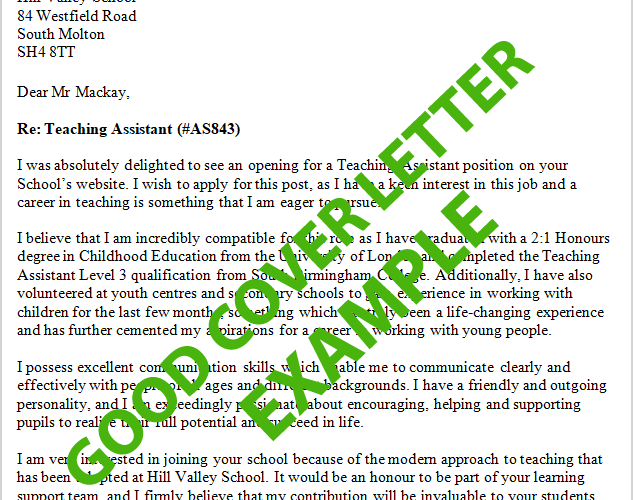A cover letter is an optional but often significant addition to your resume. A properly drafted cover letter attracts the attention of a potential employer. Usually, the cover letter distinguishes the job seeker from other applicants and increases the chances of being invited for an interview. Experts of writemyessay service prepared an overview of the main points of writing a cover letter to draw the attention of employers.
Do You Need to Write a Cover Letter?
A cover letter shows the person’s interest in getting a particular position and reveals in more detail the dry facts from the resume. In addition, it demonstrates writing skills and manner of expression. This is especially important for positions where you have to work with text. For example, for copywriters and journalists.
A cover letter may be a mandatory requirement in some cases: if the employer has indicated its necessity in the job description, you should not ignore it. Often a cover letter is required when applying for a job at a foreign company.
A cover letter is also necessary if you change your field of work or profession. This case will help explain the reason for the change and highlight valuable skills for the new position.
A cover letter is not needed at all if you are applying for a line staff position, such as janitor or cashier. Typically, employers get a lot of responses and don’t have time to read cover letters.
How to Write a Cover Letter to Your Resume
The cover letter should tell why you want to get the job, the relevant experience, skills, and personal qualities that will help in the new place of work. Pay attention to the benefits the employer will receive by hiring you. If you are changing jobs or if you’ve had a break in your career, explain in your cover letter.
Review the job posting carefully. Pay attention to the requirements. It’s a plus if you describe your skills for each condition in the job.
To keep your cover letter from looking like a mass mailing, include the name of the company and the position for which you are applying. Address the recruiter by name if it is spelled out in the text of the vacancy.
Structure
The structure of cover letters is about the same and looks like this:
- Greeting.
- Indication of what position you are applying for and why you are interested in it.
- A description of relevant experience.
- Personal qualities and skills appropriate for the specific job.
- An appreciation for your time.
- Signature and contacts.
If you are applying for a position in a creative field, include a portfolio (or references to it) or selected examples of work in your cover letter.
The style of the letter should be formal and business-like. Avoid colloquialisms and parasitic words.
What You Should Not Write About
Do not copy snippets from your resume into your cover letter. This text is a supplement to your resume. The letter should compliment it, not duplicate it. Also, avoid contradictions between the text of the cover letter and your resume.
Avoid stamps and don’t send the same cover letter to different employers. Ideally, create a text from scratch each time, focusing on the job requirements and revealing your skills for the position.
You should not write that the vacancy is a fallback position, even if it is true. Such responses the employer will not consider.
How to Write a Cover Letter for a Candidate with No Work Experience?
If you have no work experience, a cover letter is an extra opportunity to draw your attention.
- Pay attention to what requirements the employer has for candidates. For example, if stress management, organization, and multi-tasking are required, describe where and how you have exhibited these qualities. For example, you had an internship at a factory, a session at university, and a move. And you coped with everything. That’s great.
- If an employer needs people management experience, write about working part-time as an animator or a counselor at a children’s camp. But only if it’s true.
- Emphasize courses, participation in the Olympics, sports hobbies. Describe anything that shows you at your best.
- Examine the employer’s website. If there are any exciting ideas for the development of the company, write about them. This way, the recruiter will understand that you are serious. The chance that you will be invited for an interview will increase many times over.
How to Write a Cover Letter to a Student?
The student needs to specify the topic of the thesis. Then, explain why you chose it and what ideas can be applied to the employer’s company.
Tell about your experience in industrial practice. Describe what you have learned. Tell about medals, achievements, courses taken. Every employer will approve a commitment to development.
For the student, the cover letter should specify the days and hours available for work. One of the employer’s main concerns is that students can’t work much. If difficulties arise, go online. The student can find examples of all kinds of writing, from business personal statement examples to cover letters.






